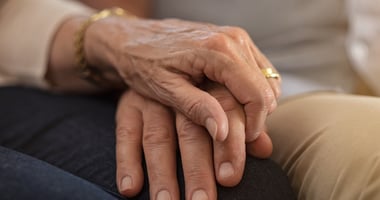Clozapine, LAIs Found Effective in Patients With First-Episode Psychosis and Cannabis Use Disorder

Individuals with first-episode psychosis (FEP) and cannabis use disorder who were prescribed any antipsychotic were significantly less likely to be hospitalized for psychosis than similar patients who did not receive an antipsychotic, according to a report in Schizophrenia Bulletin.
Clozapine and long-acting injectable (LAI) formulations of risperidone, aripiprazole, and paliperidone were the most effective medications at preventing relapse and hospitalization due to psychosis. Clozapine was also most effective at preventing hospitalization due to substance use.
Alexander Denissoff, M.D., of the University of Turku, Finland, and colleagues noted that cannabis use is common among FEP patients. Further, continued cannabis use after a first episode of psychosis has been associated with more severe symptoms, nonadherence to antipsychotic treatment, and an increased frequency of relapse.
For that reason, “improving outcomes of FEP patients with dual disorders is of paramount importance as relapse after the index psychotic episode is associated with adverse clinical outcomes,” they wrote.
Denissoff and colleagues used Swedish national registries to track the outcomes of 1,820 individuals diagnosed with FEP and co-occurring cannabis use disorder between 2006 and 2021. The main outcome was hospitalization due to relapse of psychosis, though the researchers also looked for hospitalizations due to any substance use disorder.
A total of 1,111 of the 1,820 patients were hospitalized due to psychotic relapse. The researchers found that patients who received any antipsychotic were 33% less likely to be hospitalized due to a relapse of psychosis compared with patients who did not receive an antipsychotic. Regarding individual medications, LAI risperidone was associated with the most significant reduction in hospitalization risk (60%), followed by LAI aripiprazole (58%), oral clozapine (57%), and LAI paliperidone (54%). In contrast, LAI olanzapine, oral quetiapine, and oral risperidone were not found to prevent hospitalization due to relapse.
In the cohort, 1,143 of 1,820 patients were hospitalized due to substance use disorder. Clozapine was associated with the greatest decreased risk of subsequent hospitalization due to any substance use (86%) followed by LAI formulations of risperidone (67%) and paliperidone (63%).
“These findings encourage the early use of second-generation long-acting injectables as an important secondary prevention strategy to reduce rates of hospitalization in first-episode patients with comorbid cannabis use disorders,” the researchers concluded.
For related information, see the Psychiatric News article “Strategies for Reducing Cannabis Use By Patients With FEP.”
(Image: Getty Images/iStock/PeopleImages)
Don't miss out! To learn about newly posted articles in Psychiatric News, please sign up here.





